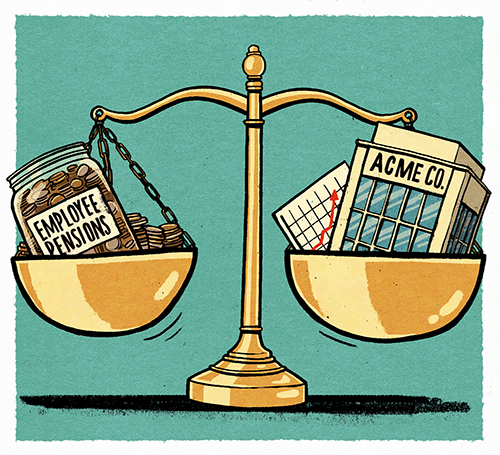The DB ‘problem’
Editorial: Britain is in the mood for change. The feeling that something should be done differently, and soon, has also taken over much of the debate around defined benefit pensions.
The events surrounding the British Steel and BHS schemes have catapulted pensions into the public consciousness once more – for negative reasons, and worrying at the very least for the average person.
The Work and Pensions Committee is a key player in generating and continuing the debate about DB. As part of its inquiry into the Pension Protection Fund and the Pensions Regulator it invited views on DB pensions. The select committee will next month look at whether to break inflation-linking in DB pensions, the FT reported on Friday.
Many in the industry seem to believe that members will have to give up some of their current rights, as reported in our article published on Thursday.
The proposed changes range from the introduction of a performance element, to lowering pension increases, or giving the regulator a kind of arbiter status so that it can bless compromises between trustees and employers, as some feel intervention should be possible before a sponsor becomes insolvent.
However, others point out that not all DB schemes and employers are in dire straits. Many are well funded and have strong sponsors behind them.
In the regulator’s new blog, executive director for regulatory policy Andrew Warwick-Thompson explains why his answer to whether DB is unaffordable is ‘no’ – citing the fact that half of FTSE 350 companies can pay dividends that are many times what they pay towards plugging their scheme deficits.
However, it is also true that higher deficit recovery contributions might mean lower dividends, potentially making a business less attractive to investors.
Aon Hewitt partner Lynda Whitney rightly points out there is a balance to be struck between members’ interests and the viability of employers.
Select committee inquiry: What should change to safeguard DB?
As the deadline for submitting views on defined benefit to the Work and Pensions Committee has passed, experts say there is a need for greater flexibility, potential benefit reductions and increased powers for the Pensions Regulator.
Employers that cannot satisfy shareholders and cannot invest – because of how much cash is destined for the DB scheme – cannot create new jobs, which would disproportionately impact on younger people. This is just another facet of the intergenerational fairness debate that is accompanying the DB discussion.
However, it is also clear that employers who can afford them should not be able to easily shirk their responsibilities and renege on promises made to DB members. Whether the scale will ever be in perfect balance is yet to be seen.
Sandra Wolf is editor at Pensions Expert. You can follow her on Twitter @SandraCWK and the team @pensions_expert.
Most Viewed
- ‘A fundamental point of fairness’: MPs call for action on discretionary increases
- TPR to scrutinise ‘systemically important’ professional trustee firms
- What does Labour have in store for the pensions industry?
- Defining the role of the scheme actuary
- Five themes at the forefront of a sustainable future


